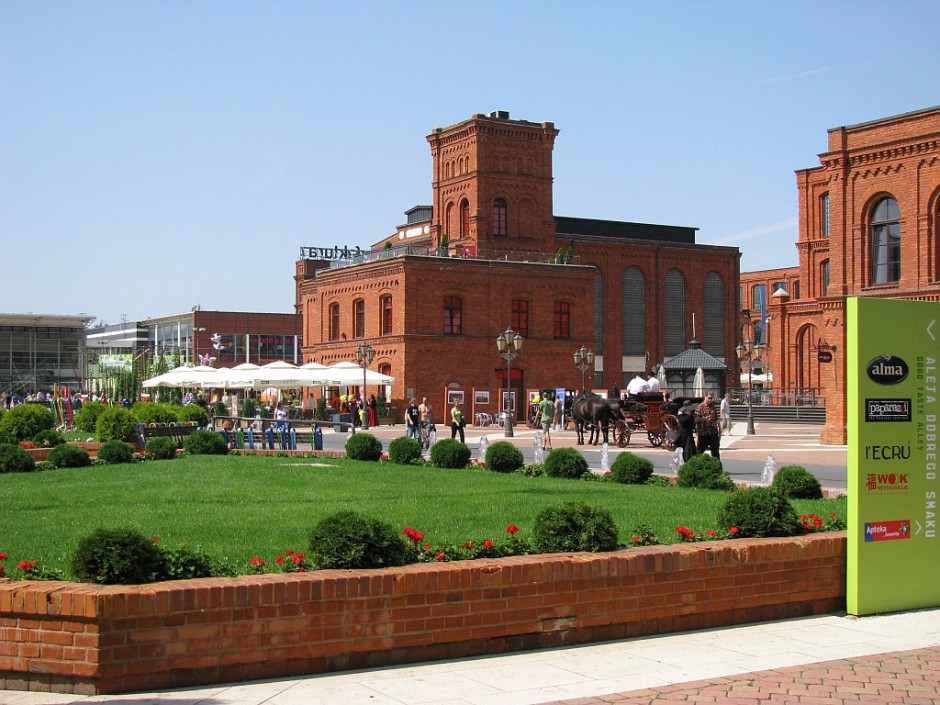It’s a mall with a difference.
The Manufactura Center, a sprawling complex of bright red brick buildings in the heart of the Polish city of Lodz, looks a lot like any sleek shopping mall in North America or Europe.
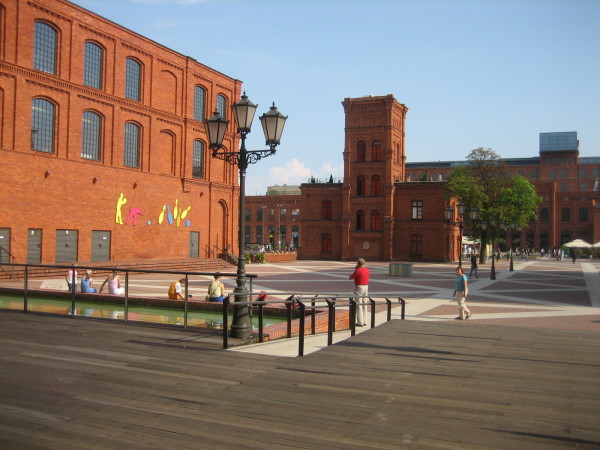
Set on 27 hectares at the corner of Zachodnia and Ogrodowa streets, this modern mall has more than 200 shops, cafes and restaurants in 100,000 square metres of space, as well as a four-star hotel and conference center, a multiplex cinema and an outdoor children’s playground.
Manufactura, however, is different, if not altogether unique.
The 13 buildings that form Manufactura were once part of a massive textile factory that was instrumental in transforming Lodz into the Manchester of Poland.
The factory, comprising a weaving plant, a spinning mill, a finishing shop, a dye work, a bleach house, a power plant, warehouses, a fire department, a railway station, workers’ quarters, a hospital and a church, was a self-contained town with a population fluctuating between 6,000 to 8,000.
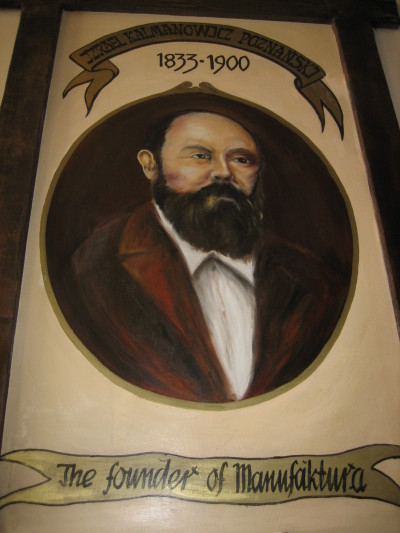
It was owned by one of Poland’s most illustrious entrepreneurs, the legendary Izrael Kalmanowicz Poznanski, who was born in 1833 in Aleksandrow and died in 1900 in Lodz. He was buried in a mausoleum in Europe’s biggest Jewish cemetery.
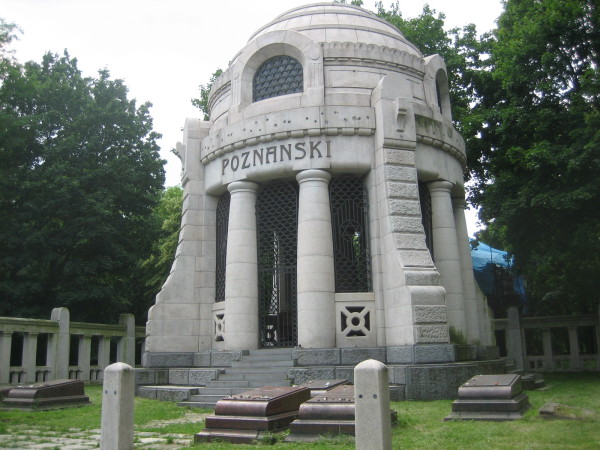
Poznanski was nothing if not a visionary, opening the first state-of-the-art weaving plant in Poland, its 200 mechanical looms powered by a steam engine, a technical breakthrough in the textile industry.
Being a man of conspicuous consumption, he built a grand palace for himself and his family next to his gigantic factory. Today, it is known as the Louvre of Lodz.
When his architect asked what stylistic flourishes he desired, he reportedly said, “What do you mean by which style? I can afford them all.”
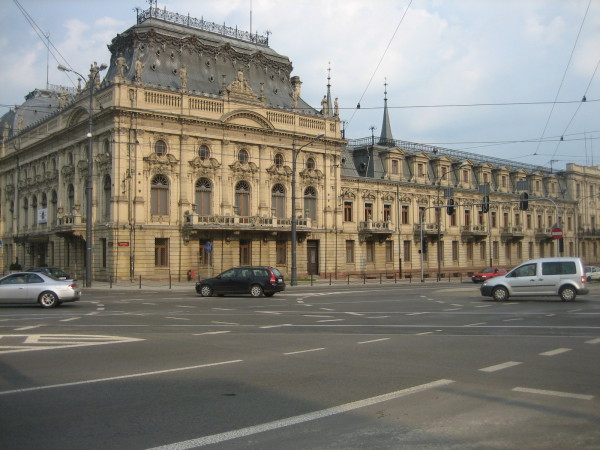
Poznanski’s eldest son, Ignacy, inherited the company, but when he died in 1908, it was acquired by Jakub Hertz, Izrael’s son-in-law.
During World War I, the German army destroyed machinery in the Poznanski factory. And after the 1917 Bolshevik Revolution, the firm was cut off from its cotton fields in Russia.
The Poznanskis sold their share in the company in the late 1920s and left Poland. One of Izrael’s descendants, Alicja, is married to the former separatist premier of Quebec, Jacques Parizeau.
Poznanski’s neo-Baroque palace, at 15 Ogrodowa Street, houses Lodz’s Historical Museum. His other sons’ palaces have also been converted into public spaces. Maurycy Poznanski’s neo-Renaissance palace, at 36 Wieckowskiego Street, has become the Museum of Art. Karol Poznanski’s Florentine Renaissance palace, at 32 Gdanska Street, houses the Academy of Music.
During Nazi occupation, Poznanski’s factory produced uniforms for the German army. After World War II, the communist government nationalized the plant. By the late 1980s, when Poland made the peaceful transition from communism to democracy, the factory was in deep financial trouble, unable to compete with low-wage countries like India and China.
Poland’s new democratic government declared the company bankrupt in 1991. It was closed a year later, ending a distinctive chapter in Lodz’s economic history. Left abandoned, the factory sank into decrepitude.
In 1999, the complex was purchased by the Apsys Group in Paris. Its president, Maurice Bansay, is a French Jew.
Apsys was invited to build Manufactura by a Polish businessman, Mieczyslaw Michalski, who regarded it as a gentrification project. Manufactura, officially opened in 2006, has created more than 4,000 jobs in a city with a population of about 780,000.
Currently Lodz’s largest shopping and entertainment center, Manufactura claims to be the biggest renovated site in Europe. “We’ve managed to preserve much of the factory’s original character,” said a spokesperson. “Manufactura speaks to the city’s noble past and points toward its promising future.”
Certainly, Manufactura has not forgotten Izrael Poznanski.
The Museum of the Factory, located in the old finishing shop, traces the evolution of his empire through multimedia presentations. A working loom enables visitors to create fabric designs.
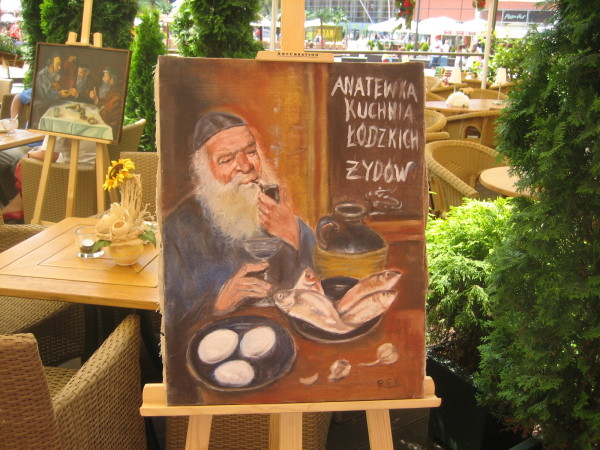
Amid Manufactura’s profusion of restaurants, one stands out in particular, Restauraja Anatewka. An elegant Jewish-style restaurant adorned with Judaica and Jewish-themed paintings, its menu offers such delicacies as Poznanski’s mushroom soup, Rothschild duck in cherries, Jewish carp, Jewish caviar and roast goose with Jewish sauce.
Like some other restaurants in Poland, Anatewka is clearly trying to capitalize on an interest in Jewish nostalgia.
As is Manufactura.
